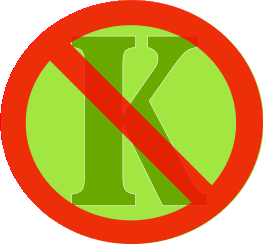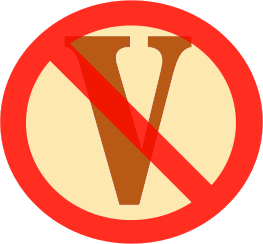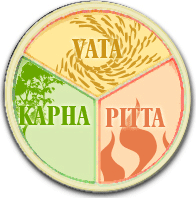MUSCLE HEALTH REMEDIES

|
The muscle is called Mamsa vaha srotas in Ayurveda. Categories in Bones MusclePostureJoint, Tendon, & LigamentMuscleBonesHairNailsOverviewIntroductionMuscles play an integral role in the body. First and foremost, they allow for movement. Because of muscles, you can accomplish your goals and move forward in life. If your muscles are strong and in good condition, you will have balanced body composition, a relatively muscular build, be brave in the face of adversity, have a powerful presence, ambitious attitude, and strong sex drive. When your body and muscles are strong and stable, so is your mind. However, if muscles are weak and in poor condition, you may experience signs of wasting muscle tissue, weakness, muscular pain, twitching, spasms, stiffness and fatigue. Not only that, deficient muscle tissues can also result in low confidence and low libido.Muscle tissue (mamsa dhatu) includes skeletal muscle, cardiac muscle, smooth muscle, ligaments and tendons. Together, they play an essential role in coordinated mobility, strength, maintenance of posture, binding the body together, giving shape to the body and protecting delicate organs such as your stomach, liver and intestines. Muscles are the second densest tissue in the body after bones and can contribute to up to half the entire body weight. The Role of the MusclesThere are different categories of muscle tissue, each with their own functions. Smooth muscle (mrudu mamsa) governs the movement of food through, and its elimination from, the gastrointestinal tract as a result of peristaltic contractions. Smooth muscle also allows for vital functions such as respiration (diaphragm), reproduction (vagina and womb) and circulation (veins and arteries). Cardiac muscle (hrud mamsa) is highly specialized, only found in the heart, and pumps blood through the body. Skeletal muscle tissue is under voluntary control of the nervous system and provides support and movement.Muscles contain bundles of fibers surrounded by connective tissue called fascia. These fibers are then grouped in bundles of bundles, surrounded by more fascia. Connective tissue is included in Ayurveda's definition of mamsa dhatu. Tendons (kandara) connect muscle to bone and allow for movement. Ligaments connect bone to bone, hold structures together and keep them steady. Fascia connect muscles to other muscles. On an esoteric level, muscle tissue relates to all the connective tissue in the body except for blood and bone. This quality of muscle tissues binds and holds the whole body together as one. A muscle contracts in a similar way that a nerve fires - though an electrolyte pump. When calcium is in excess and magnesium is deficient, the muscle may become hyper (udana vayu). When magnesium is in excess and calcium is deficient, the muscle may become overly lax (apana vayu). Muscles require balanced blood chemistry to function gracefully. Similar behaviors can be seen in the nervous system as racing thoughts and fidgeting muscles often happen at the same time. The Ayurvedic ApproachMuscles are composed of the qualities of earth and fire element in Ayurveda. The heavy, stable and dense qualities of earth bring physical stability and strength to the muscles while the hot, sharp and transformative qualities of fire bring blood, heat and energy. The muscles have a close relationship with the blood. Plasma (rasa) nourishes the muscles by transporting proteins and essential electrolytes, such as sodium, potassium, magnesium, calcium and chloride, which are essential for muscle contraction. The blood (rakta) energizes the muscles by providing the most important nutrient, oxygen. Muscle tissues require a regular supply of fresh oxygen. Contraction of muscles uses a lot of fuel; the more the muscles move, the more blood, and oxygen, is needed. Take exercise as an example, circulation and blood flow increase to ensure the muscles have an adequate supply of oxygen.In Ayurveda, the strength and quality of the muscles is determined through visual assessment. Excessive ear wax is a sign that too much protein is being consumed in the diet, leading to overproduction of poor quality muscle tissue. Muscle tissue is very sensitive to disruptions in blood chemistry, much like nervous tissue. Ayurveda recommends purifying the blood by reducing digestive toxins (ama) through proper diet and cleansing, ensuring adequate hydration and balanced electrolytes. Muscles become strong when used appropriately, so exercise suited to your constitution is recommended in Ayurveda. However, muscles can be damaged by overexertion, strain and overstretching, as microtears in the muscle can lead to a buildup of scar tissue. Ayurveda offers a workable framework to restore the health and vitality of the muscle tissues, depending on the person's individual needs. The first step is to stimulate and strengthen digestive capacity (agni) to reduce the formation of digestive toxins. These toxins can create an acidic environment in the blood, disrupt blood chemistry and ultimately affect the quality of the muscles. By reducing blood toxicity and improving the quality of the blood (rakta), the muscles will receive the adequate nutrients to perform optimally. If the muscle tissue is deficient, Ayurveda promotes the inclusion of anabolic foods, such as dairy, meat, and other sources of protein to build the tissue. Muscles also need regular movement and exercise, but just to a comfortable level. Exercising to about 70% capacity, or to when you just start to break a sweat but can still breathe through your nose, is recommended as opposed to pushing beyond your limits. What Causes an Imbalance in the MusclesAn imbalance in the muscles can be a result of either excess or deficiency. Diet and lifestyle play a major role in the quality of muscles. Not taking in enough protein, overeating or undereating, insufficient rest and sleep, incompatible food combinations and eating a diet inappropriate for your body type can all create ama and negatively impact muscle tissue. Inappropriate exercise, either too much or not enough, for your body type can weaken and strain the muscles. Mental health can also affect the physical body - stress, confidence and emotional issues can all have a depleting effect on the body and weaken muscle tissues. If there has been a previous trauma to the area, such as a major injury or surgery, this weak spot (khavaigunya) can also leave the area susceptible to future imbalances.Common AilmentsLow Muscle MassCertain body types, usually Vata, can find it difficult to gain weight and maintain muscle mass. In Ayurveda, low muscle mass can be improved by following a Vata pacifying diet including sweet, stable, heavy and dense foods such as grains, nuts, seeds, beans, meat and dairy. These building foods increase strength and promote muscle mass. Diet alone isn't enough to build stronger muscles, digestion must be balanced first so the body can actually absorb and assimilate the essential nutrients. A digestive stimulant such as ginger, salt & lime appetizer can be used to kindle agni. Ayurvedic self massage (abhyanga) promotes strength, particularly when performed with an oil such as ashwagandha bala oil. In this imbalance, any intense exercise and hard labor should be avoided. Instead, focus on regular but gentle movement with adequate rest, hydration and sleep.Muscle CrampsCramps and spasms occur when muscles suddenly contract due to dehydration, overexertion or simply being in one position for too long. To reduce cramps, it is important to balance electrolytes. Drinking some coconut water and eating a banana can replenish your stores. An evening bath with a cup of epsom salts will relax muscles and reduce painful contractions due to the magnesium content. Aromatic herbs such as eucalyptus and peppermint essential oil infusions can relieve a cramp when applied topically. Aromatic substances have their own special relationship with muscles as they open up blood flow to the region, relieving the cramp. Not only do they improve blood flow and increase relaxation, they also aid in protein digestion by stimulating acid production in the stomach.Tight MusclesThe first step to reducing tight, stiff muscles is to stretch them out. Try some gentle yoga to loosen things up. On a deeper level, tight muscles require more oxygen so blood flow should be increased. Turmeric invigorates the blood, cleanses the tissues and is helpful for improving the mobility of muscles. Many warming, aromatic herbs can be used for the purpose, especially cloves and cinnamon. Regular self massage will also keep tight muscles supple.Muscle TonicsVataVatas are most prone to muscle conditions including wasting, tremors, tics, hyperactivity and tightness. Of all the body types, Vata will benefit most from regular oil massage. Vata oil and ashwagandha bala oil are all appropriate. Bala is Ayurveda's most famous muscle tonic but has not been declared safe for internal consumption by the FDA, so using it topically is recommended. Ashwagandha taken internally is a rejuvenative tonic that imparts strength on the whole body. It's often used in cases of tissue depletion, emaciation or over exertion. It strengthens muscle tone, increases muscle weight, reduces wasting.PittaPitta individuals generally have a medium build and are quite strong. However, they are known to take their strong bodies for granted and can over exercise and push themselves too far. Mahanarayan oil is suitable for both Vatas and Pittas. It is particularly useful to relieve tension built up in overused muscles, and it contains lots of Pitta pacifying herbs such as shatavari, neem, turmeric, fennel, manjistha, brahmi and bhumyamalaki. Cooling tonics like shatavari and licorice will also benefit Pitta. Pitta Kapha individuals have ample fire and earth, and often have strong, well built muscles. This body type should reduce, but not eliminate, red meat consumption to prevent over production of poor quality muscle tissue.KaphaKaphas naturally have the most earth element in their body which gives them ample strength and stability. However, a purely Kapha type tends to have poor tone and weaker muscles as they don't use them regularly. Kaphas would rather an evening on the couch than go out for a walk! Despite their lack of enthusiasm, regular aerobic exercise is key to put the muscles to work. A lighter diet and reducing heavy foods like meat, dairy, nuts and seeds will also benefit a Kapha type. Their sluggish metabolism can be remedied with the use of pungents such as trikatu.ConclusionMuscles are the driving force of the body. The serve to protect, create energy and allow for countless range of movement. When the muscles are balanced, you feel strong, capable and stable. When the muscles are weak or deficient, a person may lack confidence and strength of mind. An imbalance in the muscles occurs to a range of causes, most commonly by eating an improper diet and using your muscles incorrectly - either too much or not enough. To balance the muscles, Ayurveda promotes strengthening digestion, cleaning up blood chemistry and eating a diet appropriate for your body type. Ayurveda also offers a unique framework to balancing the muscles by taking the individual's needs into account and promoting lasting health and rejuvenation of the tissues with the use of tonics.Herbal Actions Affecting Muscle
Don't know your body type? Take our free Dosha quiz!
TAKE THE QUIZ
32 likes  SAVE SYMPTOM SAVE SYMPTOMMuscles may be weak due to over-exertion, exposure to heat, under-use, or electrolyte imbalance. Sodium, potassium, magnesium, and calcium are essential for proper muscle function. Heat prostration may develop after a long period of sweating. 45 likes  SAVE SYMPTOM SAVE SYMPTOMPoor muscle tone and weak ligaments may result from sweet thick, Kapha blood, lack of exercise, hypothyroid, lymphatic congestion, and liver or gall bladder congestion 33 likes  SAVE SYMPTOM SAVE SYMPTOMCauses may include: Exhaustion from physical labor Dehydration, electrolyte imbalance, calcium, potassium, sodium, or magnesium deficiencies Stress Anemia and other blood deficiencies, lack of food Low metabolism,... 34 likes  SAVE SYMPTOM SAVE SYMPTOMEye twitching generally comes from toxicity or imbalance in electrolytes such as magnesium, potassium, or taurine. 4 likes  SAVE SYMPTOM SAVE SYMPTOMKapha individuals have large, smooth lips due to the richness of rasa dhatu, the blood plasma. 48 likes  SAVE SYMPTOM SAVE SYMPTOMTight muscles can be a sign of cold, poor circulation, toxicity, or tension. Keep muscles warm and blood flowing through the muscle to encouraging the muscle to relax. Stretch the muscle gently while massaging it. Don't overstretch the muscle since... 30 likes  SAVE SYMPTOM SAVE SYMPTOMGood hip alignment is the foundation of good posture and emotional equanimity. Hips should be back with the tail-bone downward, and devoid of tension.      (5.00 out of 5 stars) 1 rating, 45 likes (5.00 out of 5 stars) 1 rating, 45 likes SAVE SYMPTOM SAVE SYMPTOMCramping generally comes from poor circulation, toxicity, or imbalance in electrolytes, such as magnesium or amino acids such as taurine. Cholesterol medication can cause cramping as well. 34 likes  SAVE SYMPTOM SAVE SYMPTOMLeg cramps generally comes from poor circulation, toxicity, or imbalance in electrolytes. Cholesterol medication can cause a cramp as well. There is a colon marma or acupressure point where the two heads of the gastrocnemius muscle meet. This point may... 31 likes  SAVE SYMPTOM SAVE SYMPTOMMuscle cramps are sometimes a sign of poor circulation, poor electrolyte balance, or use of anti-cholesterol pharmaceuticals. 155 likes  SAVE SYMPTOM SAVE SYMPTOMNerves and muscles, which function similarly, are highly sensitivity to changes in blood chemistry. These tissues are irritated by toxins, often arising from fermentation in the digestive tract, or other pathogenic factors including... 8 likes  SAVE SYMPTOM SAVE SYMPTOMPitta individuals have adequate heat and high metabolism which prevents the buildup of bulk. They also have strong digestion, which nourishes their tissues, preventing the wasting one sees with Vata. The result is a finely-chiseled physique. Strong... 
AYURVEDIC FACE ASSESSMENT
Learn how to assess constitution by a person's face.
|
Join Joyful Belly.
Want our top Ayurvedic recipes and health tips?Subscribe to our free newsletter!












